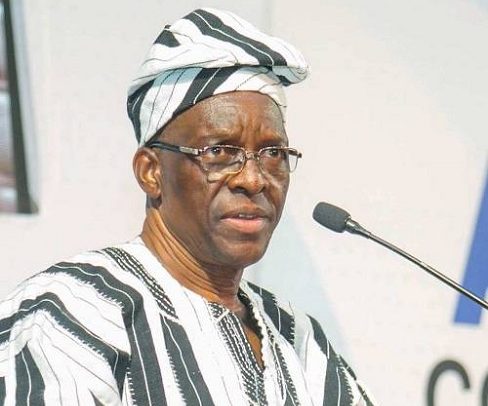Alban S.K. Bagbin
The Speaker of Parliament, Alban S.K. Bagbin, has stated that political parties must lead the process in appointing the leadership of Parliament.
According to him, the caucuses cannot be talking about designating or appointing their leaders without the party leading the process.
“I have heard and I have listened, and I know that the parties are having problems with new definitions of the leaders.
“The old [Standing] Orders referred to party or parties but this new one is not referring to the party but caucuses,” the Speaker indicated.
According to him, while the old Orders defined the Majority Leader to mean a Member of Parliament designated by the party or parties having majority of the seats in the House as their recognised leader in the House, the new Order says, “The Majority Leader means a Member of Parliament designated by the Majority Caucus as their leader in the House.”
Mr. Bagbin added, “The same Standing Orders talk about the Majority Caucus and say Majority Caucus means the members of the party or parties that have the largest number of seats in the House.”
“I really don’t see the difference. It’s still talking about the same thing. The caucus is a party wing – that is the wing of the party in Parliament.
“You cannot be talking about you designating or appointing your leaders without the party leading the process. I don’t understand that because the same definition is here,” he insisted.
He explained further, “So if you come as a new House you will scarcely know each other and then you are asked to go and appoint your leader.”
“Without the party, how are you going to do it? It is the party that has given the platform to come to this House. You come on the ticket of the party, and to appoint your leader, the party must lead that process,” he said.
The Speaker acknowledged that this process could be controlled by some parochial interest, but admonished that “There are constitutional provisions, including legislative provisions that bind the parties and compel them to be national in character.”
“The leadership of the caucus must show that national character. If you leave it to the caucus alone, you are likely to face challenges,” he stated.
Contrary View
But the First Deputy Speaker, Joseph Osei-Owusu, disagreed with the interpretation that was given by the Speaker.
“It appears to me that in interpreting the parliamentary portion, we haven’t taken a look at the various things of the other parties.
“If you take my party, the NPP for example, we have what is called the Women’s Caucus, the Youth Wing,” he said.
According to him, when it comes to the election of the leadership of the youth wing, only the youth of the party vote to choose their leadership, and the same method is used to select leadership for the women’s wing.
“I am not aware of any parliament where anybody outside parliament selects leaders for the parliament.
“I think in interpreting the Standing Orders and the Constitution, the parliamentary group must be recognised as a wing of the party that can and must take decisions regarding its leadership,” he asserted.
The First Deputy Speaker continued, “It doesn’t mean that the party has no role. The parliamentary wing is a wing of the party and in deciding who to lead them, I think it should be left to the parliamentary wing in consultation with the party to decide who their leaders must be.”
“We shouldn’t have a situation where a body outside parliament, often without consultation and indication whatsoever, just announces this is the leadership,” Mr. Osei-Owusu, aka Joe Wise, intimated and concluded, “I think that this Standing Order must be interpreted as such.”
By Ernest Kofi Adu, Parliament House

